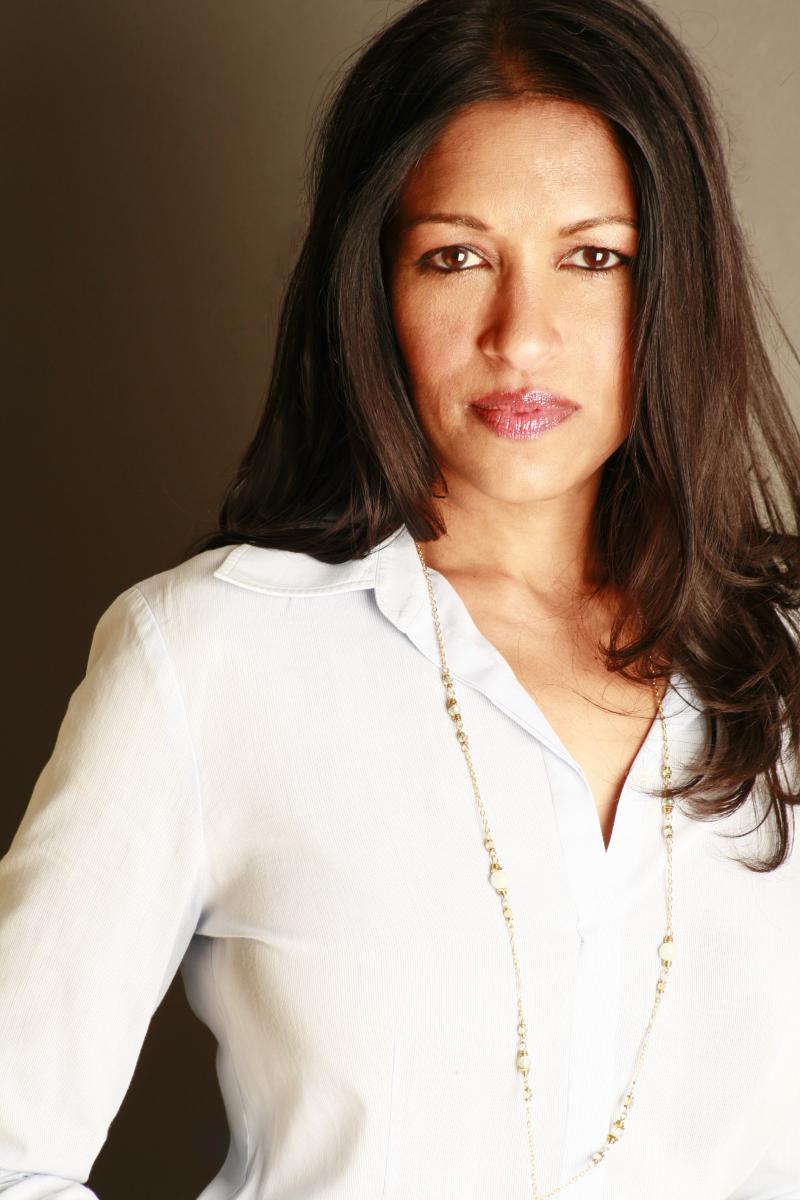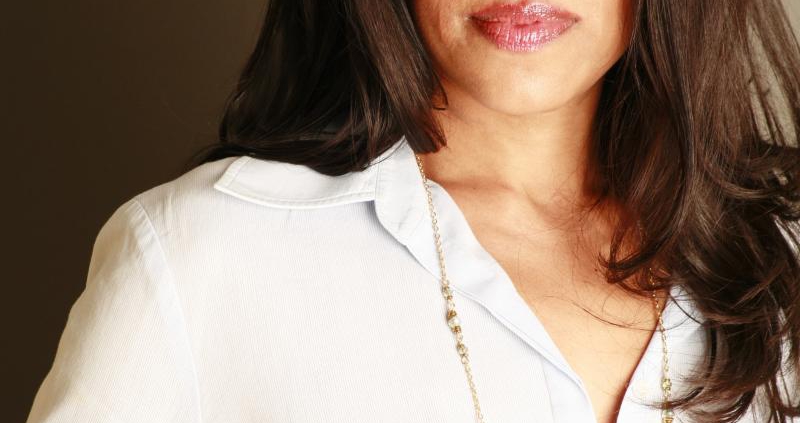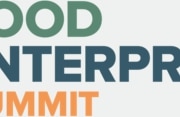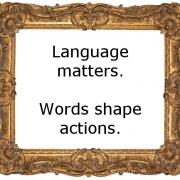Interview with Rashmi Airan: Law, Blindspots, Prison and Redemption
 An interview with Rashmi Airan, speaker on ethics, law and culture; leadership and compliance consultant; and growth strategist
An interview with Rashmi Airan, speaker on ethics, law and culture; leadership and compliance consultant; and growth strategist
Background:
Rashmi was a successful lawyer who graduated with honors from Columbia Law School. After working for several major corporations, she launched an independent law practice in Miami, Florida. During the housing boom, she was recruited to work with a local real-estate developer who later engaged in shady business practices. Her involvement resulted in a one year sentence in Federal prison, alongside a $19M judgment against future earnings, required community service hours and 3 years supervised release. As a mother of two and devoted community activist, Rashmi has reconfigured her subsequent career to focus on growth strategies and leadership/compliance training for firms, corporations, and graduate schools. She has also become widely known as a public speaker, sharing her story to help illustrate the ethical perils and situations that can result from a drive to succeed and the blindspots created when pursuing a goal.
This interview has been edited and condensed from a conversation on January 19, 2017.
1) What are the main takeaways from your story that you want others to know?
I believe there are many reasons why I am telling my story. I want to help people so that they do not find themselves in the same predicament that I was in and make different choices when faced with daily “gray” decisions. I finally came to a place of peace that I had done something wrong when I gave myself the freedom to forgive. After I forgave myself, my lessons became clearer. I reflected on different business relationships and the fact that I had not looked into things deeply enough. I know there are lessons for both young and seasoned professionals. I believe I can enlighten people to the fact that there is a fine line and we must all walk between the two sides of right and wrong and choose to be on the right side of the line.
2) How did your personal pursuit of career advancement lead you into an ethical blind spot?
I wanted to be the perfect daughter, the perfect student, the perfect mother – that was my goal. I was raised with this principle – I am the eldest of three daughters from a first generation family from India. I felt the pressure to go to the best schools, to get the best grades, etc. But, there was also a self-induced pressure to succeed which society defined as making money and having a solid reputation. I began working at Morgan Stanley investment bank, then at several national law firms, followed by the government, and I finally started my own firm. All of my employment opportunities have always been rooted in reputation and community prestige, yet were always based on financial success. I wanted to serve my community and to be involved on committees and boards. But, to do that effectively, to get there, I needed money. Once I had money, I could be the philanthropist in Miami now making a difference and helping people.
With all of this backdrop combined with being a woman, I also needed to prove that I could do whatever a man could. I was the major breadwinner in my family and I needed to maintain the lifestyle that my family was living. I wanted my children to be able to to live a full life. Due to these burdens and combined weight on my shoulders, I engaged in activity without due diligence, making assumptions, and choosing not to ask the ethical and necessary hard questions.
3) The concept of ethical fading illustrates how people can make decisions without realizing there are ethical components. How does this concept relate to your story?
I know that I did not allow myself to ask the hard questions. When a person is so focused on providing for her family or because her job is requiring something from her, it can be hard to recognize the ethical aspects of a situation. I think all of us want to provide for our families, do something that our job or profession is asking of us, and, sometimes in the process, we lose sight of the ethical decisions that we should be focused on.
Most of us believe we are at a foundational level, good people and will only act ethically. When we make decisions that oppose this internal belief in ourselves, whether because of situations or other influences, we fail to return to the ethical dilemma because we automatically assume we will behave ethically. In my case, since I was submitting documents to the bank for approval, I believed the forms were all in order and I did everything appropriately. I did not listen to my inner voice.
I now have to face the reality that people today can not buy houses partially because of my involvement in the sub-prime crisis. Had I thought it through and tried to stop it, it could have prevented me from being involved.
4) What are some ethical pitfalls for lawyers that they should be aware of?
I believe this is something that could happen to anyone including doctors or pharmacists with their patients; business owners with their clients and more. We are all always facing these ethical decisions, but we analyze it as a gain to business, reputation, and community to rationalize these decisions.
I think lawyers are predominantly high on themselves, and others [outside the legal profession] think lawyers know everything. With that perception, comes a perpetuating belief that lawyers are too smart to make the wrong decision. Therein lies a massive ethical pitfall. A lawyer could be making a wrong decision and realize it in the midst of the act, but will refuse to even admit it to themselves, and especially not to others for fear of losing prestige and reputation. Most lawyers do not want to be seen as weak or needing to ask for help. After all, lawyers are supposed to be the all-knowing; right? What I realized is that we all desire to continue this false reality that demands perfection and does not allow room for questions or errors. There is no culture of conversation around compliance and ethical decision that we face daily. I was a solo practitioner and certainly did not have the resources around me to rely on for advice or to ask questions on a daily basis.
Thus, my small business led me into ethical pitfalls even more so that had I been working for a bigger firm. I believe that had I had a network of partners and more experienced lawyers supporting me in a firm environment, I might not have made the same decisions. Of course, that depends on the culture of that firm and whether such conversations are promoted and respected within that workplace.
5) Talk to me about trust and how it was assumed, overlooked or manipulated in your situation.
This is a tough question. I am a person who trusts everyone and I tend to give people the benefit of the doubt. So it was easy to trust the real estate developer client I was introduced to [and who eventually went on to break the law]. In my heart and gut, the types of transactions that he was proposing did not add up. But, I did not ask the hard questions because I wanted to trust him. I wanted to believe that the business I was going to get involved with was ethical and legal. I am very personable so I always like to have friends and colleagues to collaborate with. So, for me, I believe I ultimately found myself in this predicament partly because I trusted my client. But, really I also relied on myself too much to know if I was doing something wrong. These beliefs all contributed to my ethical blind spot.
When my inner voice was screaming “ask questions!” I did not pursue it. Once I began working with the client and reaching some level of financial stability, I convinced myself that that my client was trustworthy. Things are different now having undergone a federal indictment and sentencing. Now, I do not trust others without verification and extreme caution. If I am asked to give my feedback on any topic, I try to be diligent and careful in regards to my actions, behaviors and statements.
6) Can you identify any pressures that impacted your decisions?
I had both professional and personal pressures. My dad came here with $8 in his pocket to attend school and achieve that American dream of education and a better life for his family. He obtained a masters degree and a doctorate degree in engineering and is now on his second career after obtaining a juris doctor and masters in law degree. In the Indian community, there is a strong desire to achieve good grades, go to the top schools, win awards, get hired by big companies, and make money. As a woman, I was raised with the understanding that boys and girls are equal. I have always felt that I am equal to boys. But, inherently I had something to prove – to all those that valued boys more than girls. I was also the primary bread-winner when my children were young. I simply wanted to succeed. All these outside pressures contributed to certain decisions and the mindset with which I entered my first meeting with the real estate developer client with whom I ended up being indicted.
There was also tremendous pressure to be profitable and achieve with no supervision because I was a solo practitioner. There was no risk management or compliance seminar organized for me. When you are alone and trying to wear many hats as the business owner, there is such a lack of oversight and that breeds potential problems. You can make decisions without a devils-advocate, or someone to bounce ideas off of. Don’t get me wrong, being your own boss has many advantages, but also lots of pressures that are not realized sometimes till much later, as in my case.
7) How do you bounce back after personal ethical failure? Why is sharing your story important?
As I was growing up, I believed that I had to achieve a high level of success, which would make my community proud. I thought that was the only way I would be loved.
Once I was sure that I was going to be indicted, my family and I invited our close Indian community of friends to my parents’ house to tell them about the case and what happened. After we shared what was going to happen, a very close family friend leaned over and said to me “…You will eventually learn that this is not happening to you, it is happening for you.” It took me 6 months to realize that I did something wrong. It then set in that the universe needed me to learn many lessons and that I was going to be stronger, learn humility, be a testimony for my spirituality to others, and empower other people with my lessons. That quote from our friend really put that into perspective.
When I surrendered to prison, I was shackled and handcuffed. I was scared and uncertain as to how I would be able to withstand the full term of my sentence. When faced with difficulty, we all have fear and momentarily it is easy to think that “you don’t know how you will get through it.” I grew stronger with each day and with the faith that I knew I was meant to experience this time of my life in this particular way and then to share my story with others so that they would, hopefully, never have to undergo anything similarly to what I did. I have to share my story because I feel stronger every time I speak. It is also healing and in my soul, I know it is the right thing for me to do. If I can help one person, it is worth it
8) Talk about your punishment. How did it help you reflect? Can you draw comparisons to other stories / situations?
My incarceration was a year and a day. I have three years supervised probation. I have two restitutions against me totaling over $19M, I have 200 hours of community service I have to provide, and I am limited to what I can do to earn an income.
But, no matter what anyone tells you, the day of surrender is the worst day ever. That experience, the whole day of entering the US Marshall’s office, taking off your clothing and personal items, filling out paperwork, taking the DNA test, having handcuffs and shackles placed tightly around your wrists and ankles, the terrible food seems to never end.
When I finally reached my appointed designated facility, one of my first jobs was taking out the trash. I had to empty garbage into a dumpster every night for 2 months for the whole compound of over 450 women, every night at 8:15pm. Talk about humility. You learn pretty quick that you are just like everyone else.
The lessons I learned while in prison were human lessons. It put things into perspective. The knowledge about compliance and ethics that I now speak about were hard things for me understand and put into words initially. I have spent a lot of time going inwards and reflecting on what happened. Sharing the inflection points of my journey have so much value and I feel honored to be able to help other people by sharing my story.
9) How have people reacted to hearing your story? Is it sobering, or do people think it could never happen to them? How would you have reacted hearing a story like yours when you were starting off in your career?
The majority of people I talk to are sobered by what I have to tell them. Law students typically feel invincible. They don’t know what the pressures are like and don’t realize that my experience could happen to them too. Good people still can make bad decisions, which then can have serious consequences. When I was invited to speak at Columbia Law School, where I graduated top of my class and was a Senator of the student government, the students were shocked. They felt that my career and path had been similar to what they were trying follow, so the fact that I was forced to leave my family and give up my license had a major effect. The point of my speaking is to show the smart, good people that, yes, this can happen to you.
It is ok to ask questions, it is ok to make a mistake and admit to it, it is ok to acknowledge that you did something wrong. We are all imperfect beings. It is when you acknowledge that you are imperfect, you garner the power to help others and cause great positive changes around you. Once I accepted the gift of imperfection, I was able to overcome the fear and shame. As I share my story, this newfound strength impacts others. So many folks want to be perfect but I tell people that being imperfect is awesome and humbling at the same time. People will love you more when you realize that you are simply human.
10) What is next for you? Where do you see yourself in 10 years?
If my dreams and aspirations are met, I want to continue sharing my story with others. Every large company and law firm and Fortune 500 company need to hear unique stories like mine. A culture of conversation around compliance and ethics needs to be promoted. We need accept each other as imperfect beings learning through our shared experiences.
Most importantly, my priority is my kids, being a good community member and staying healthy.
11) What was the main thing you learned from all of this?
To accept each other as imperfect beings needing to foster conversation around ethics, law, and culture.
12) Do you have any recommended books/videos/articles about ethics to share?
- Dr. Brené Brown, The Gift of Imperfection
- Paulo Coelho, The Alchemist
- Don Miguel Ruiz, The Four Agreements
- Robert Hoyk and Paul Hersey, The Ethical Executive
- Ekhart Tolle, A New Earth







